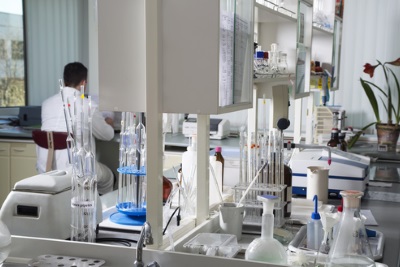
There is an underground black market in China where fraudsters are going to great lengths to fake research reagents used in scientific experiments, a report by the journal Nature has revealed.
According to the article, many scientists have had suspicions for some time that the research reagents they used, including antibodies and serum for cell culture, were not the real deal. There have even been concerns that standard lab test kits have been bogus.
Cheap, common antibodies may be relabelled as expensive and rare antibodies, while other genuine reagents may be diluted resulting in weaker versions, the article says. Packaging is replicated, and is often hard to distinguish from the genuine brands.
The fakes are often sold through "sophisticated websites", that may also feature legitimate supplies, and tend to involve a complicated procurement and distribution network, with some actors, like lab cleaners, not even aware of their involvement in the illicit activity, the Nature article says.
Some scientists believe that some scientific experiments may have been influenced by using fake products. For instance, one scientist was unable to replicate the results of a published experiment for six months until "he discovered that a reagent used to introduce DNA into cells was hampering his replication efforts", which has now been attributed to a counterfeit.
The article says that the counterfeit trade in reagents is booming in China because of the investment in biomedical and scientific research there, while the complexity of the Chinese supply chain has led foreign companies to become dependent on local distributors. "The country poses many distribution challenges and shipping is logistically difficult," Nature cites Jay Dong, global vice president and Asia Pacific general manager for antibody manufacturer Cell Signaling Technology, as saying.
The article claims: "Disreputable merchants can take advantage of the inflated prices and long waits created by China's laborious customs and quality-control measures. They offer low prices and fast service for what appear to be the same products, sometimes claiming that the goods have been smuggled into the country."
It adds that local distributors will often pose as foreign company representatives importing and selling the premium products, when in fact the products are cheap and locally manufactured versions.
The scale of the illicit trade is unclear, the article notes, but says that UK-based antibody firm Abcam investigated hundreds of queries it received from Chinese scientists last year and concluded that counterfeit products were to blame for 42 per cent of the cases.
Addressing the issue has become a concern, with scientists not keen to speak out for fear of drawing attention to their research and the results, and legal action expected to have limited impact, the article says. Furthermore, counterfeiters are wily in their ability to continually resurface as new sales entities.
Increasingly, however, researchers are putting measures in place to ensure they only buy from legit sources, while the reagent manufacturers are pushing education initiatives and customer support programmes, Nature says.
Changes to customs regulations is also hoped to help stop the illicit trade, the journal says.
©
SecuringIndustry.com





